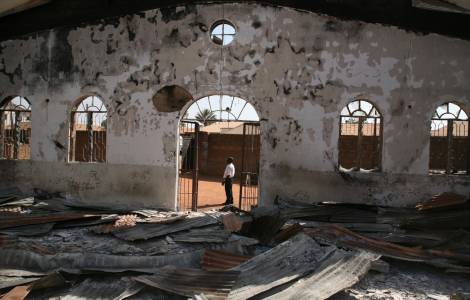
Abuja (Agenzia Fides) - Between 9,000 to 11,500 Christians killed; Since 2000 at least 1.3 million Christians are now internally displaced or forced to move elsewhere; 13,000 churches have been destroyed or forced to close its doors; thousands of businesses, properties and houses of Christians have been destroyed. This is a picture of the violence of which Christians in northern Nigeria and in the so-called Middle Belt are victims, according to the report "Crushed but not Defeated" of the organization Open Doors, sent to Agenzia Fides.
Because of the violence, the report said, in some areas of northern Nigeria, "the Christian presence has been virtually erased or has consistently decreased, while in other areas the number of faithful in churches has grown because of the Christians fleeing from violence and a number of Muslims who converted to Christianity".
"In addition, social cohesion between Muslims and Christians has been endangered. Mutual trust has substantially disappeared; Christians and Muslims have become more and more separate, grouped in neighborhoods, or specific rural areas", the report warns.
The document shows that although ethnicity, political conflict and the struggle for the exploitation of resources are known sources of violence in northern Nigeria, the causes of violence against Christians in this area appear rather varied. You may find religious, economic and social reasons at the same time. The elements of violence specifically targeted against Christians in northern Nigeria are connected by a common religious denominator: to defend the interests of Muslims in the north, their identity and the position of Islam.
"Not only radical Islam, Boko Haram is its best-known example, but also Hausa-Fulani Muslim breeders and the Muslim political and religious elites of the north are the main actors of the violence that seeks to strike the Christian minority" is stressed in the report.
Nevertheless there is still a large Christian presence in northern Nigeria. But the Church in this region will have to try not to close in on itself and break away from society. It should do the opposite, stimulated by its Christian urge to be involved with society and work for justice, peace and reconciliation by sharing their resources for the good of all.
To do all this, the help of the international community is needed for the Church to work for the renewal and transformation of the Christian community and the Nigerian society in the North in general. (L.M.) (Agenzia Fides 24/02/2016)